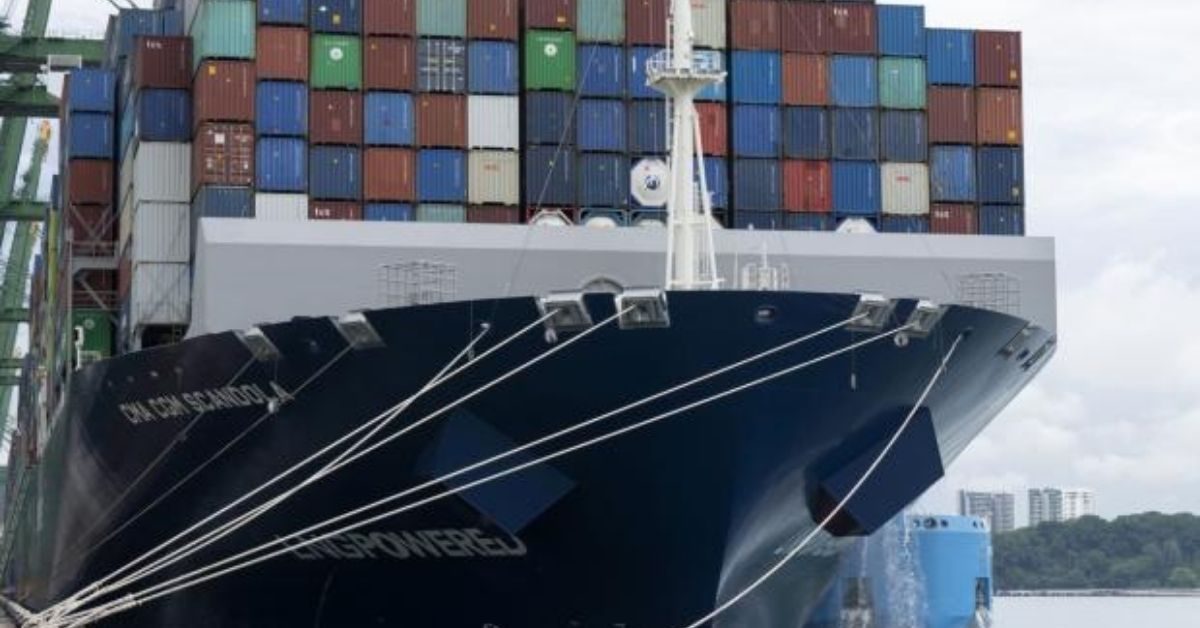The CMA CGM Group and Shanghai International Port Group (SIPG) signed a long-term strategic collaboration to develop the mass scale use of ‘cold ironing’ technology, the use of onshore power supply for container ships at the Port of Shanghai.
In late November 2022, the CMA CGM Group and SIPG successfully completed the technical trial of the “cold ironing” facilities of Yangshan Terminal in the Chinese port, which involved the CMA CGM’s 13,982 TEU container vessel APL Fullerton and several other boxships.
All fully-fitted CMA CGM container ships calling at the port of Shanghai will systematically use the onshore power connection. By allowing ships to shut down auxiliary engines and use an onshore power supply while at berth, ‘cold ironing’ eliminates sulfur oxide, particulate matter, and nitrogen oxide emissions, significantly improving air quality while also reducing noise pollution.
According to CMA CGM, most recent vessels are now equipped with the technology required to use “cold ironing”, and the French ocean carrier is conducting an extensive retrofitting programme so other container ships can also use an onshore power supply. By the end of 2022, 13 CMA CGM vessels calling at the port of Shanghai will connect to the onshore power supply, and by mid-2023, this number will increase to 50.
Beyond significantly improving air quality and reducing CO2 emissions and noise pollution, this cooperation follows the successful pioneering of LNG simultaneous operation (SIMOPS) bunkering achieved in March 2022 in Shanghai and represents another major milestone as part of CMA CGM and SIPG’s partnership to accelerate the shipping and logistics industry’s decarbonisation.
Ludovic Renou, CEO of CMA CGM China, commented, “CMA CGM is steadfastly committed to installing more environmentally responsible solutions on board our vessels, the Group supports cold ironing and we will continue to equip our fleet accordingly. We are breaking new ground by partnering with SIPG, our strategic partner, to collaborate on the mass scale cold ironing, another landmark in our partnership after the historic China’s first LNG SIMOPS bunkering jointly completed by us in March this year.”
The CMA CGM Group is committed to achieving Net Zero Carbon by 2050 and intends to accelerate the energy transition in shipping and logistics, led by an enhanced energy mix.
By the end of 2026, the Marseille-headquartered shipping group will have a fleet of 77 LNG powered vessels of various sizes, while 32 “bio and e-methane ready” vessels equipped with dual-fuel engines and LNG-powered are already in service.
The engines deployed on these vessels already have the technical capability of using bio and e-methane, a source of carbon-neutral fuels.
In September, the CMA CGM Group announced the creation of a Fund for Energies, backed by a five-year, USD1.59 billion budget, to accelerate its energy transition and achieve Net Zero Carbon emissions by 2050. The Fund is dedicated to increasing the pace of decarbonisation across the company’s worldwide ocean, ground and air freight shipping activity, as well as its logistics business.







